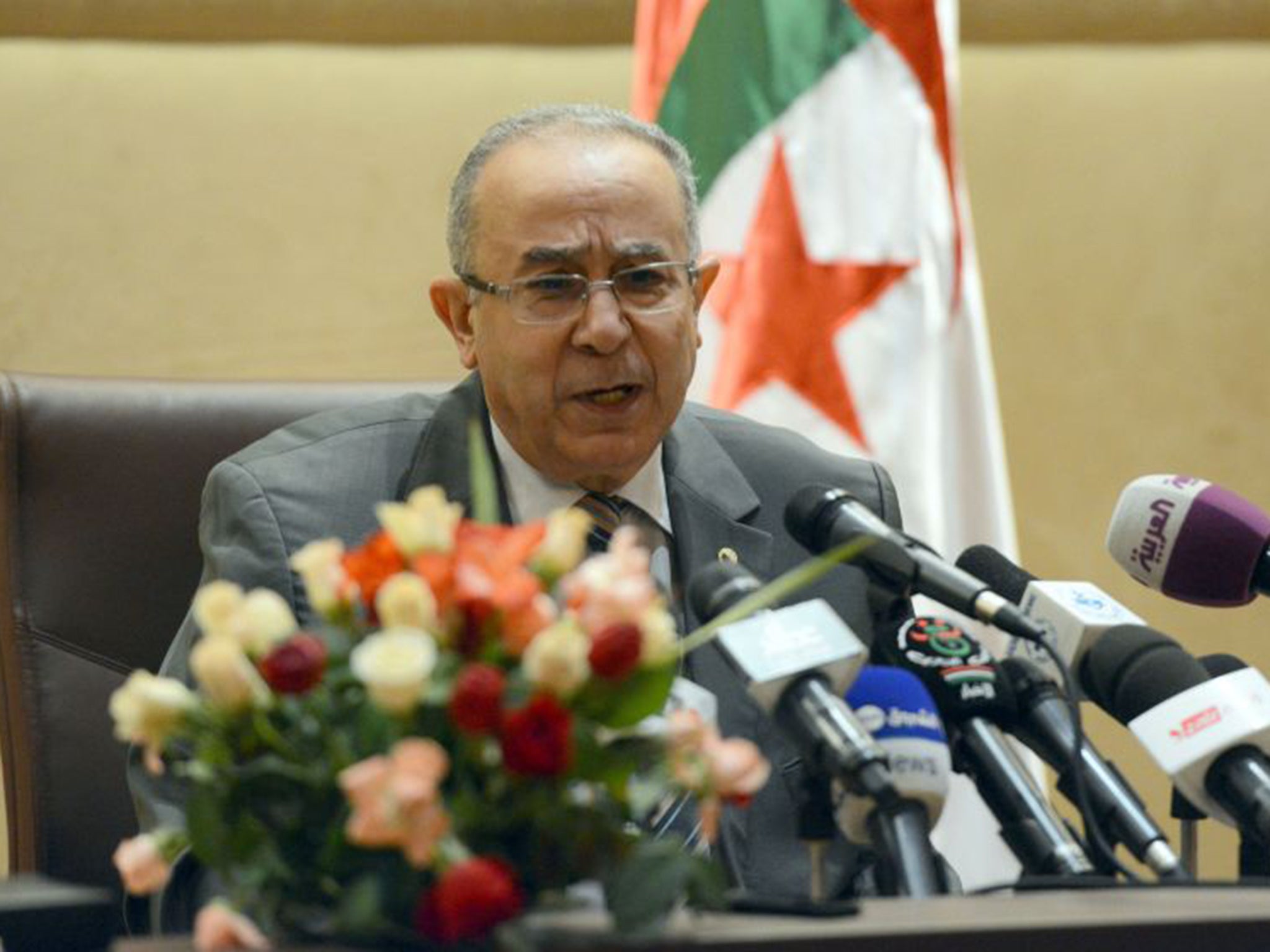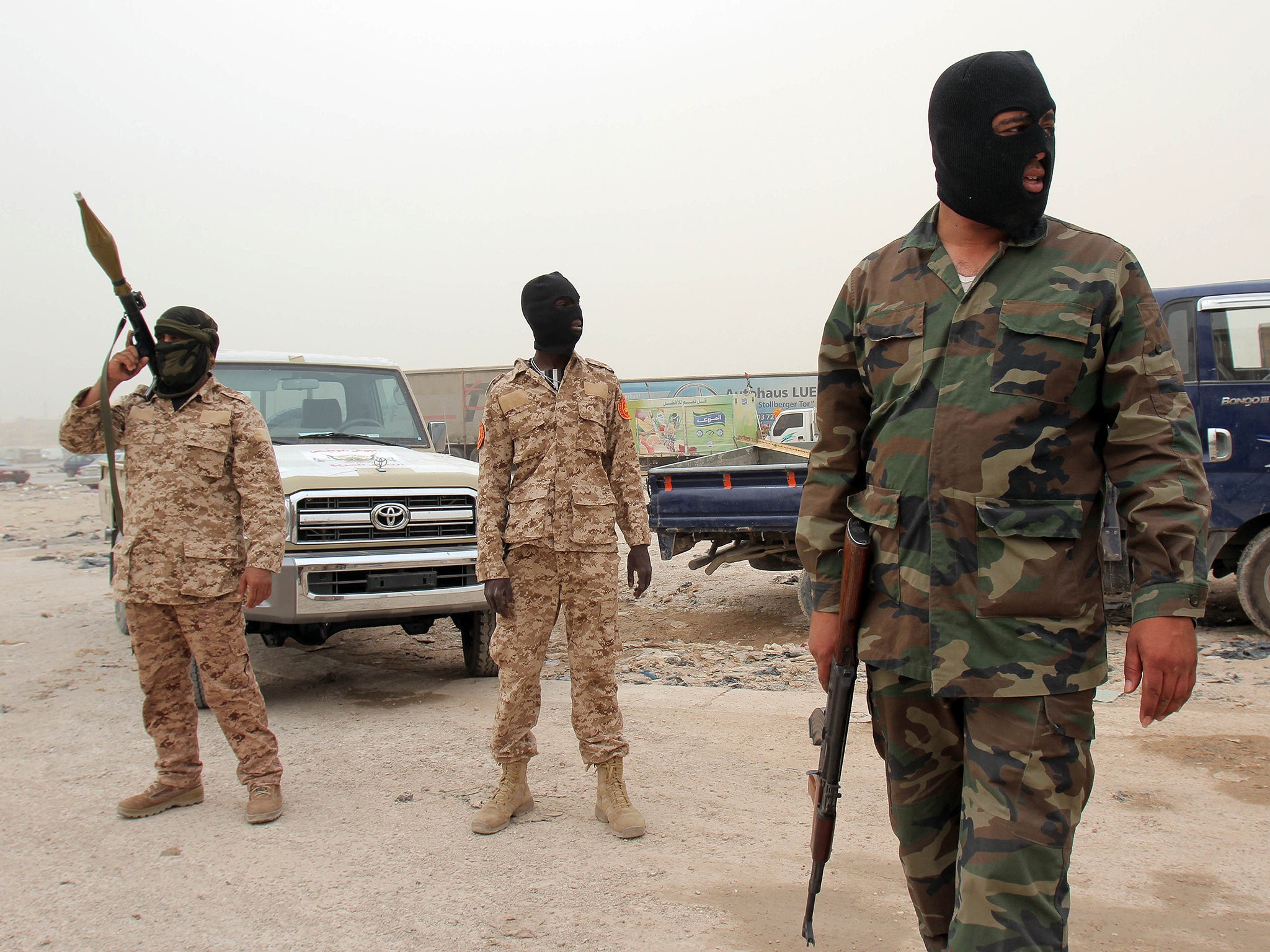Libya crisis: Foreign intervention is 'part of the problem', says Algerian minister Ramtane Lamamra
Ramtane Lamamra calls for regional diplomacy on Libya

Your support helps us to tell the story
From reproductive rights to climate change to Big Tech, The Independent is on the ground when the story is developing. Whether it's investigating the financials of Elon Musk's pro-Trump PAC or producing our latest documentary, 'The A Word', which shines a light on the American women fighting for reproductive rights, we know how important it is to parse out the facts from the messaging.
At such a critical moment in US history, we need reporters on the ground. Your donation allows us to keep sending journalists to speak to both sides of the story.
The Independent is trusted by Americans across the entire political spectrum. And unlike many other quality news outlets, we choose not to lock Americans out of our reporting and analysis with paywalls. We believe quality journalism should be available to everyone, paid for by those who can afford it.
Your support makes all the difference.Military intervention across the Middle East risks destabilising countries and increasing terrorism, Algeria’s foreign minister said, as regional foreign ministers meet to discuss Libya on Tuesday.
“Foreign military intervention can become part of the problem and not part of the solution,” Ramtane Lamamra told The Independent in a rare interview before a peace conference on his country’s war-torn neighbour. “It increases the likelihood of having more terrorist activity and of having more destabilisation in the countries that are opposed to foreign intervention.”
Mr Lamamra, a career diplomat, is leading efforts to forge a role for Algeria as a regional mediator, promoting quiet diplomacy and dialogue over foreign military intervention, as it emerges from its 10-year battle with an Islamist insurgency. But his message also has relevance for other nations considering how far to engage in Syria.
Before he was appointed minister in 2013, Mr Lamamra, 63, spent the previous five years as the African Union’s Commissioner for Peace and Security. His attempts to push for a peaceful solution through dialogue in Libya in 2011 were, he felt, ignored by Nato powers intent on helping the rebels to overthrow Muammar Gaddafi by military force.

“Foreign intervention may have prevented the Libyans themselves from going into the kind of solution that the African Union was proposing at the time, which was a peaceful transition,” he said, adding that many armed groups had taken advantage of the chaos since the intervention.
With Libya, Mali and Tunisia among its neighbours, Algeria – ruled since 1999 by President Abdelaziz Bouteflika, who won a fourth election last year – is fighting to maintain its relative stability. Since last year it has sent thousands of troops to patrol its newly closed 4,000-mile border with Mauritania, Mali, Niger and Libya. They have arrested hundreds of smugglers in a bid to cut off the channels that fund terror in the Sahel region.
“The neighbourhood is part of our own security,” Mr Lamamra said. “Whenever you contribute to resolving these kinds of problems in your neighbour’s territory, you are protecting and enhancing your own national security.”
The country has stepped further onto the regional stage in recent years as it has emerged from its “black decade”: the bloody civil war against a popular Islamist insurgency that had been set to win elections in 1992. Since then, it has become a key ally of the West and the US in the Sahel,
Echoes of that period have informed Algeria’s coolness toward the Arab Spring. Its officials have not forgotten the arms embargo imposed on its army by the international community in the midst of the civil war – a reaction to widespread allegations of human rights abuses by security forces.
In 2011, the country refused to support the Arab League’s decision to expel Syria over the atrocities committed by President Bashar al-Assad’s regime, and kept its embassy open as other countries began to close theirs from 2012 onward.
Meanwhile, as Libya reached a crisis point last summer, Algeria worked behind the scenes to mediate talks between the many rival groups. “Algeria believes discretion is always key to the success of mediation,” said Mr Lamamra.
He contrasted the “fragmented” and unsuccessful Libyan agreements co-ordinated by the UN with its own talks in Mali, which led to the Algiers Accord signed earlier this year. The recent attack in Mali’s capital, Bamako, by gunmen linked to the extremist al-Mourabitoun armed group was believed to have been aimed at derailing that agreement.
Today, the UN’s new Libya envoy, Martin Kobler, is expected to meet foreign ministers in the region in an attempt to further talks. Mr Lamamra said Algeria would encourage Mr Kobler to give Libya’s neighbours a more active role in discussions. “[Neighbouring countries] are better placed to understand the culture, the habits, the traditions,” he said.
Join our commenting forum
Join thought-provoking conversations, follow other Independent readers and see their replies
Comments